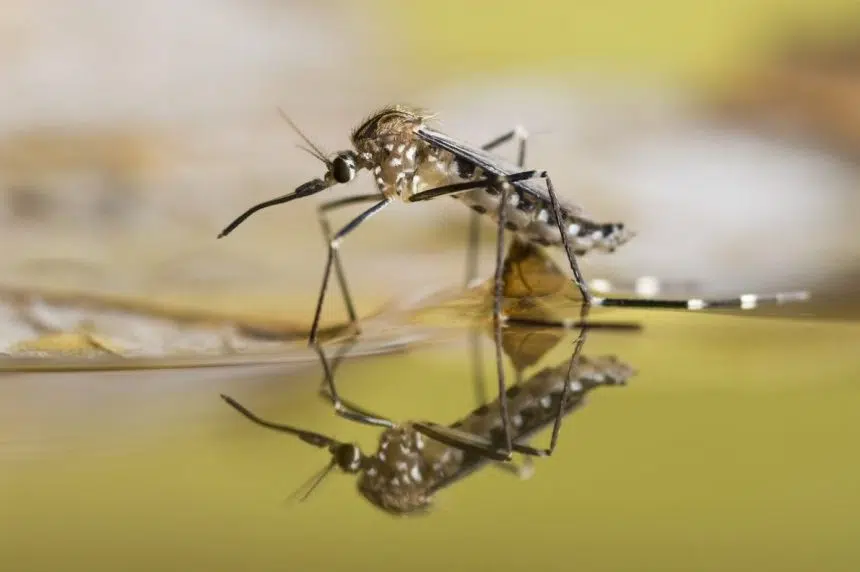Dry conditions and little to no rain around Saskatchewan could mean fewer mosquitoes this year.
“It currently looks like we’re going to have a good year, and by ‘a good year,’ I mean not having mosquitoes,” said Sean Prager, an assistant professor of plant science and associate member in the department of biology at the University of Saskatchewan.
In order to lay its eggs, the female mosquito needs a form of substrate, meaning water, a riverbank or leaves.
“In a year where we have more early rainfall, we would expect to have more mosquitoes earlier than in a dry season,” Prager said. “This has been particularly dry so we have a very low number of mosquitoes.”
The City of Saskatoon has been doing its mosquito counts. So far, there are fewer of the pests than expected.
“As of the two counts the city has done so far, we have no mosquitoes in any of the traps,” Prager said. “This is below average for both sampling periods. Usually you should have about two over the last 10 years or so.”
Prager expects Regina is similar in its counts.
Most people likely won’t miss the swollen, itchy red bumps caused by mosquito bites. But do you know why some people get bitten more than others?
It’s primarily caused by carbon factors.
“If you’re breathing heavy and exhaling, mosquitoes like that,” Prager said. “If you’re sweaty, sometimes they’ll be attracted to that. Then there is the individual odour of people, but one of the biggest ones is carbon dioxide.”
As for an itch relief, Prager advocates the use of Benadryl for bug bites or calamine lotion.
“Sometimes when you get bitten early in the season, the first bite you get is more annoying,” Prager said. “Then over time it’s less and part of that in some cases is because your body stops being upset about being bitten.”











